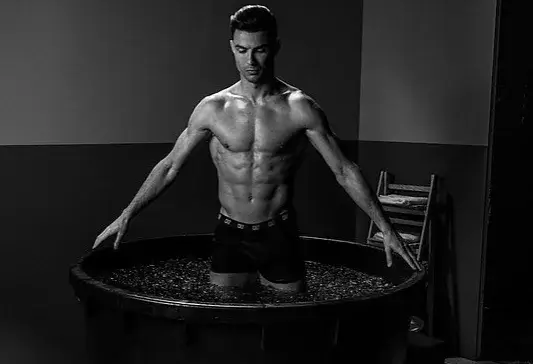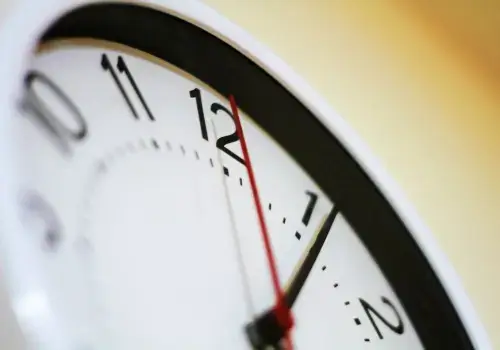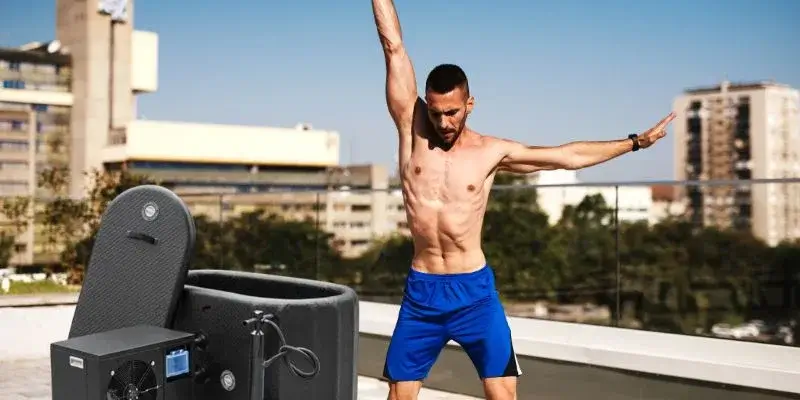An Ice Bath Recovery Strategy for Football Players( like Ronaldo
An Ice Bath Recovery Strategy for Football Players( like Ronaldo
In the football circle, we’ve heard a lot about ice baths. But when are athletes scheduled for ice baths, and what are the temperatures and durations of their ice baths?
Why does Ronaldo do ice baths?

Cristiano Ronaldo Declares Cold Water Is Best During His Recovery Session”We would sometimes return from a European game. It could be three in the morning but Ronaldo would be the player who did not go straight home. Instead, he would go to the training ground for the ice bath, to help with his recovery from the game.” his teammates said.
Cristiano Ronaldo is a great personality and he loves taking ice baths before the game. We have seen him doing this during the World Cup and UEFA games. He plunged into an ice bath again just before his country’s final qualifying encounter against Iceland in Euro 2024.
Athletes undergo intense physical activity on high-intensity days, resulting in muscle damage in their legs. Ice baths aid in suppressing inflammation and promoting recovery for them.
Japanese samurai used to train their minds and bodies using the freezing cold waterfalls. Otherwise called misogi.
It boosts metabolism, and testosterone, and most importantly, it vasoconstricts your body. Meaning, it constricts blood vessels and arteries and pushes lactic acid out of your muscles for faster recovery. You commonly see professional athletes taking ice baths, and that is why they do it.
What’s the best time to schedule an ice bath?

Scientists recommend that soccer players take ice baths after high-load or long-duration training sessions or matches.Physiologist Stephen McGregor suggests that athletes should schedule ice bath sessions for training sessions lasting over two hours or for sessions reaching high intensity. However, for sports with lower impact on the body, such as light aerobic exercises or recovery days, ice baths might not be necessary.After completing a game, your body will be quite warm. It’s advisable to wait at least 20 minutes before taking a cold water bath.
In practical application, many athletes find themselves ending ice baths prematurely due to the intense cold sensation in water below 10°C. Personally, I recommend soaking in water between 10 to 12°C for about 10 minutes or so, which seems more suitable.
During the ice bath, you can wrap your upper body with a towel or put on a sweatshirt to keep warm.
You can also consume some recovery foods during the ice bath to aid in the body’s recovery process.
How to increase the intensity of ice baths?

Generally, increasing the intensity of ice baths involves slightly extending the duration. During an ice bath, the blood vessels in the body reflexively contract, promoting blood flow back to the heart. After spending a few minutes in cold water, you’ll start to feel numbness in your body. At this point, holding out for a few more minutes is sufficient. The duration of an ice bath should not exceed twenty minutes, and the optimal duration depends entirely on the water temperature—it’s possible that shorter is better.
After the ice bath, you can follow up with a hot shower. This will help restore your skin temperature to normal. Keep the temperature of the hot shower below 45°C, and gradually, your body tissues will regain their color, and sensation will return to normal.
Conclusion:
In essence, ice baths play a pivotal role in athletes’ recovery and rehabilitation efforts, with judicious control over timing and temperature being key. When orchestrated and managed sensibly, ice baths can serve as a valuable tool in restoring athletes to peak training condition.

Vestibulum ante ipsum
An Ice Bath Recovery Strategy for Football Players( like Ronaldo
In the football circle, we’ve heard a lot about ice baths. But when are athletes scheduled for ice baths, and what are the temperatures and durations of their ice baths?
Why does Ronaldo do ice baths?

Cristiano Ronaldo Declares Cold Water Is Best During His Recovery Session”We would sometimes return from a European game. It could be three in the morning but Ronaldo would be the player who did not go straight home. Instead, he would go to the training ground for the ice bath, to help with his recovery from the game.” his teammates said.
Cristiano Ronaldo is a great personality and he loves taking ice baths before the game. We have seen him doing this during the World Cup and UEFA games. He plunged into an ice bath again just before his country’s final qualifying encounter against Iceland in Euro 2024.
Athletes undergo intense physical activity on high-intensity days, resulting in muscle damage in their legs. Ice baths aid in suppressing inflammation and promoting recovery for them.
Japanese samurai used to train their minds and bodies using the freezing cold waterfalls. Otherwise called misogi.
It boosts metabolism, and testosterone, and most importantly, it vasoconstricts your body. Meaning, it constricts blood vessels and arteries and pushes lactic acid out of your muscles for faster recovery. You commonly see professional athletes taking ice baths, and that is why they do it.
What’s the best time to schedule an ice bath?

Scientists recommend that soccer players take ice baths after high-load or long-duration training sessions or matches.Physiologist Stephen McGregor suggests that athletes should schedule ice bath sessions for training sessions lasting over two hours or for sessions reaching high intensity. However, for sports with lower impact on the body, such as light aerobic exercises or recovery days, ice baths might not be necessary.After completing a game, your body will be quite warm. It’s advisable to wait at least 20 minutes before taking a cold water bath.
In practical application, many athletes find themselves ending ice baths prematurely due to the intense cold sensation in water below 10°C. Personally, I recommend soaking in water between 10 to 12°C for about 10 minutes or so, which seems more suitable.
During the ice bath, you can wrap your upper body with a towel or put on a sweatshirt to keep warm.
You can also consume some recovery foods during the ice bath to aid in the body’s recovery process.
How to increase the intensity of ice baths?

Generally, increasing the intensity of ice baths involves slightly extending the duration. During an ice bath, the blood vessels in the body reflexively contract, promoting blood flow back to the heart. After spending a few minutes in cold water, you’ll start to feel numbness in your body. At this point, holding out for a few more minutes is sufficient. The duration of an ice bath should not exceed twenty minutes, and the optimal duration depends entirely on the water temperature—it’s possible that shorter is better.
After the ice bath, you can follow up with a hot shower. This will help restore your skin temperature to normal. Keep the temperature of the hot shower below 45°C, and gradually, your body tissues will regain their color, and sensation will return to normal.
Conclusion:
In essence, ice baths play a pivotal role in athletes’ recovery and rehabilitation efforts, with judicious control over timing and temperature being key. When orchestrated and managed sensibly, ice baths can serve as a valuable tool in restoring athletes to peak training condition.

About ther Author

Welcome to our blog! My name is peter and I am the lead author of this blog. As a sport recovery practitioner and with deep interests and expertise.
I am committed to presenting complex concepts in a clear and concise manner, and enabling readers to better understand and apply that knowledge through in-depth research and experience sharing.
Thank you for reading and for your support! If you have questions or suggestions about any of the content, please feel free to contact me. I look forward to sharing more interesting and useful information with you and growing together on this journey of knowledge!
